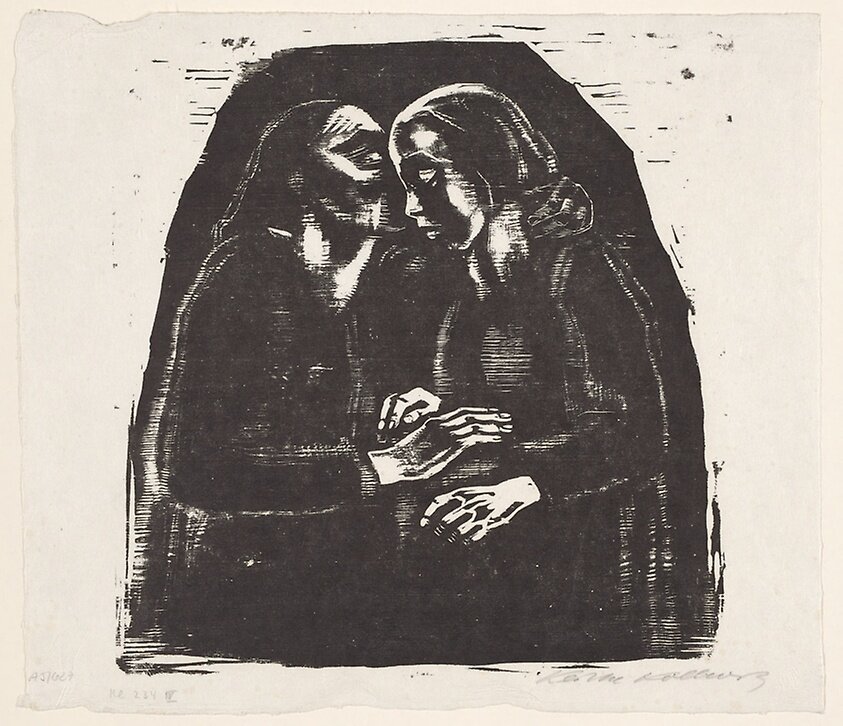LENT: WHERE THE LIGHT GETS IN
Lent was always my season in the Liturgical calendar. While all those around me seemed to celebrate the divine nature of Christ and celebrate His resurrection every week, I felt that the Lenten season was when I found Christ’s humanity on display. As he spent forty days in the desert being tempted until his crucifixion and resurrection, my sometimes-melancholy nature could relate.
As I got older, I often still found myself surrounded by many who focused on who we are post-resurrection. This is not to say that the glory and the triumph of Christ over sin and death is to be made light of, but to say, I always wondered why the truly human moments leading up to the death, resurrection and ascension meant so little to them.
Over the past couple weeks, I have been able to ponder and dwell on this forty-day season. I have been reminded of the poignant moments and what we can take from them. I look at this season when many give something up and accept the challenge of being tempted as an opportunity to see what it means to live a kingdom life in the here and now. Through prayer, and patience, I offer the following model (or continuum) of change, that we can discover through Lent.
THE OPPOSITION
Just as Christ went into the desert for forty days; we too will walk toward struggle in this life. We are going to recognize parts of our nature that need to change, and we know these changes do not happen overnight. During this season, many of us willingly open ourselves up to the challenge to change, welcoming the struggle to be better by giving up something that we enjoy or distracts (chocolate, television, etc.). We acknowledge that much of what we have is excess, and that, at some point, it must be rejeced. But as Christ did during His time being tempted, we can rely on the words of God to push back against complacency. We can stand on our faith to resist.
THE BREAKING
We also might have a Gethsemane moment. It might be due to our commitment to fasting, or just a moment of awareness on what we need to do for that little mustard seed of change to be planted. If we are blessed enough to have this moment, no matter how much we desire the cup to pass from us, we can also respond, “your will be done.”. We can hope that an angel will appear to strengthen us too. In Gethsemane is my human Jesus, a man scared about what is to come, a man that knows what breaking will mean and is willing to endure it.
During this season or any season, we can and will have these moments of internal struggle. We will want to give up or throw in the towel on our personal betterment. It can be the challenges we face as parents, spouses, or just being a believer in the world struggling to make the Kingdom known to a deaf world. We know changes or personal growth (patience, unconditional love, kindness) are good, but we do not believe that we are up to the task - we just do not have the will power to persist. We return to find our support network asleep. We might break a little, but we also strive to be faithful and get by with a little help from our friends, even the ones who fall asleep when we need them the most.
DEATH
Then, a part of us must die. For our forty-day journey through Lent to be purposeful (or meaningful), we must die so that we can be changed into something new. We will not be the same person on day forty that we were on day one. It is our sincerest hope that some barrier to growth in our life will be gone. We will see the death of pride, envy, jealousy, materialism or our cynicism. But no matter how big or small the change, the old person is dead and a new one, even if only different in the slimmest of ways, is alive.
THE RENEWAL
A new season arrives. A new man appears. The slightest changing of the heart has occurred. Maybe someone has been forgiven, or forgiveness has been sought and received. A new person stands where the old one was, but our scars remain. The scars remain and we often feel that these are the things that hurt our story, our truth. We are afraid that if someone knows about our past, our story of change loses its power. If we confess that we used to struggle with any vice, our ability to share the way of Jesus is destroyed. The truth is that our scars are the story. The scars are the revelation of who Christ is. One of the first things Jesus did after the resurrection was let a disciple touch His scars. Even someone who was close to Jesus needed the scars to believe.
The scars show that damage was done, but the wounds have healed. The story of the healing is where Christ comes through - reminding us “the wound is where the light gets in.”*
*Walter Wangerin, Jr.
“TAKE TIME THIS WEEK TO STOP AND REFLECT ON THE HUMANNESS OF JESUS.”
GREG DIETZ lives in Texas with his family. He works for the local university during the day and helps where he can with his wife’s business. He is currently working on a fantasy novel for each of his kids and hopes they never lose their sense of wonder and amazement. He loves the journey he is on with his family.









